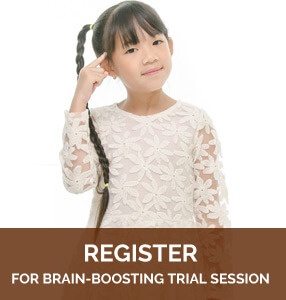Exams have become a norm in the education system and serves as a gauge of how the child is performing at their studies. While it may not give a full picture of how the child copes with the various subjects, what it does show you is perhaps how far your child has come along in learning, and even show you some of their characteristics.
Undeniably, exam stress does come to most people, be it adult or children as the skill sets varies among individuals, likewise strengths and weaknesses.
For example, in Mathematics, there are questions which require more problem-solving skills, while there are others which may require more meticulous attention and carefulness. Likewise in English or Literature, it may offer you a glimpse of your child’s range of vocabulary and language skills. Art may reflect creativity and perception, while perhaps argumentative essays can highlight your child’s reasoning skills.
While these exams may offer some insight to your child’s personality and learning, it does not reflect the entire makeup of the child.
Parents may often lose sight of holistic learning due to the emphasis of the importance of education and grades.
These days, we are trying to introduce different aspects such as team work, problem-solving and memory enhancement by incorporating them into non-academic subjects or co-curriculum activities. Yet the focus has never shifted away from academics, because ultimately, a good certification is required in our society.
Now, let’s talk about exam stress for both parents and children. Stress is like a double-edged knife. It can push you to excel, yet it can also hold you back from performing. Parents first need to understand the strengths and weaknesses of their child.
Some children are quieter while others may be more outgoing. More often than not, the focus is placed on the child who does not speak up and there may be times when the child, who seems to be of bubbly nature, is neglected. A quiet child may not necessarily need more help than one that is bubbly as their learning profiles may be different.
Sign up for a initial brain profile for your child to find our about the strengths and weaknesses of their learning profile.
Initial Brain Profile Test
While it may be the child who is taking the paper, more often than not, parents also worry for the child and his/her performance.
For parents, it is like exam stress all over again, magnified only by the parental worry of how the child will fare in his/her future.
For children, exam stress is escalated by many factors:
- Doubting one’s own capacity.
- Meeting expectations.
- Peer pressure & comparisons
- Long hours spent on focused study
- Pressure by media
For parents, the exam stress factors are similar:
- Peer pressure & comparisons
- Pressure by media
- Pressure by society
Allevate Exam Stress?
- While parents may have expectations, the bar should be set at a reasonable and realistic level.
**Over attention can add unnecessary stress on the child.**
- Encourage the child to take regular breaks, snack and also exercise during revision. Sitting there the entire day does not work if the child has already tuned out.
- Give the child space and time to revise.
- Understand that your child may be caught up in the exam stress and moody. While they are not allowed to be discourteous, be a little more understanding and tolerant towards their moody swings.
- Offer a listening ear and be supportive when your child wants to voice their worries. Listen to how your child feels and help him / her understand his / her worries and keep things in perspective. By being supportive, fundamentally, you are giving your child self-assurance and confidence in themselves as individuals.
- While your child may stay up late to revise, it is important that he / she gets sufficient sleep and a balance nutrition.
- Entertainment is crucial. It takes the concentration away from revision temporarily and refreshes the mind.
- Last but not least, upon completion of an exam, instead of criticising the performance of the child, parents should discuss and encourage the child to move on, or perhaps offer some possible areas of improvement. It is important to show positivity. Dwelling on what’s done will not allow progress.
What is done is done, and the way to move forward is to focus and concentrate on the next event.
If method A does not work, there is always Method B, C or D. You just have to find out what works for you.
Parents need to be aware that children progress at different pace and that their skill sets might not be the same. Love your child for who he is, and keep in mind that your child is an independent young adult, who needs you for guidance and support. Don’t allow exam stress to take its toll on your child and you. With proper management, exam stress can be made dealt with suitably for both parent and child wellness.









